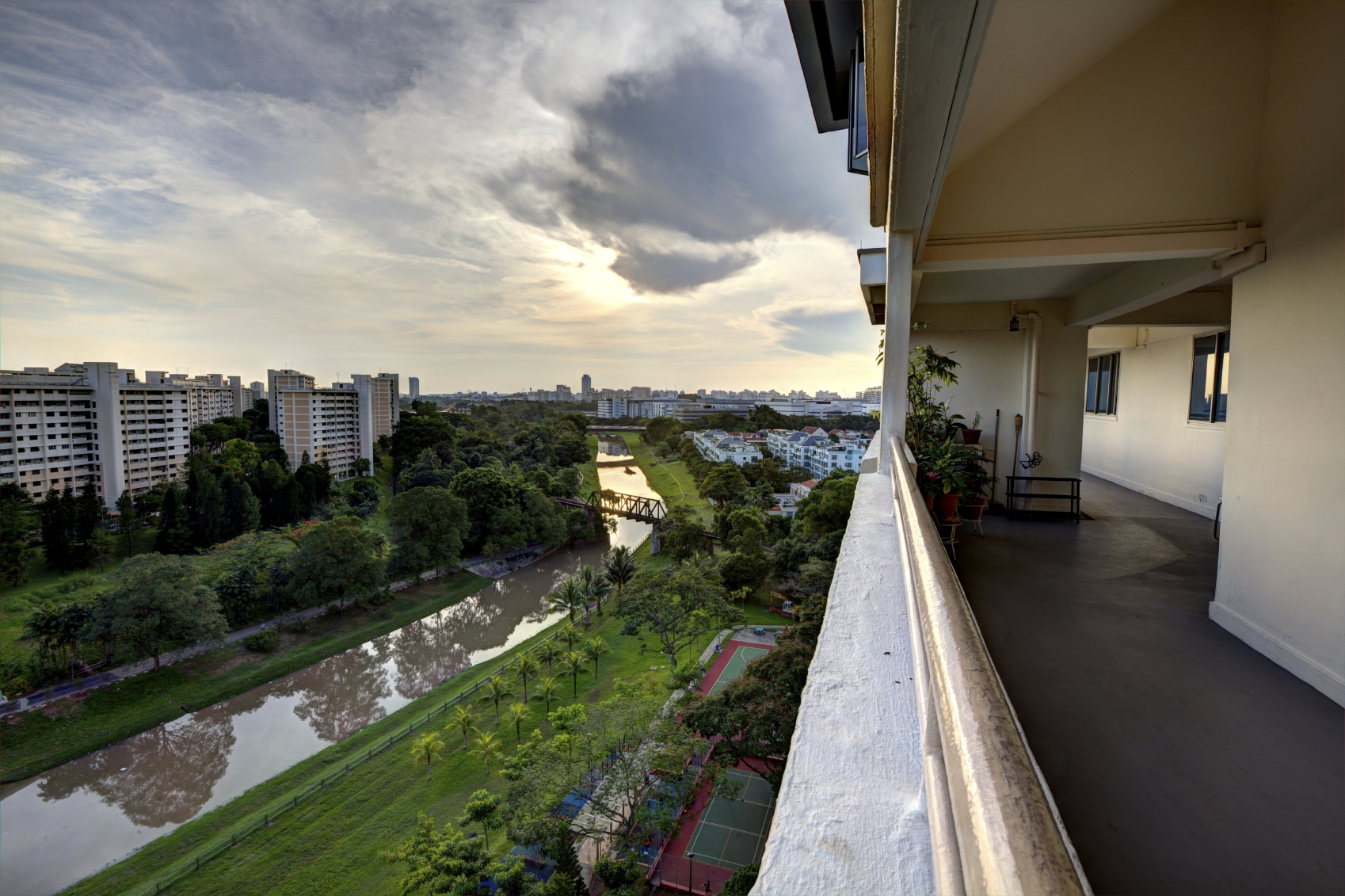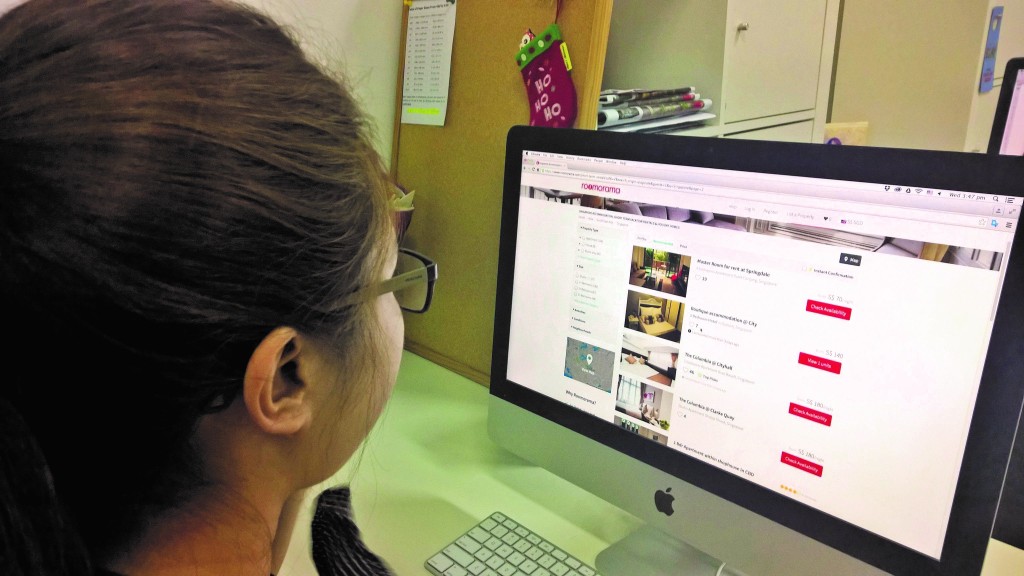Singapore is forced to rethink the rules on short-term stays as more homeowners let out their spare rooms to make extra cash.
By Romesh Navaratnarajah
In recent years, short-term rental websites such as Airbnb and Roomorama have disrupted the rental and hospitality markets in many countries around the world. Today, travellers can arrange to stay in someone’s house for a price much lower than that of most hotels. For homeowners, it offers them a quick and easy way to monetise their property.
Many people who have used such rental websites for their travels also say it allows them the opportunity to experience other cultures and make new friends.
“Short-term and vacation rentals give visitors a wider choice of accommodation options and allow for greater and more immersive tourism,” Roomorama’s co-founder Jia En Teo told PropertyGuru.
For instance, it allows tourists to see more of Singapore as they interact with locals in residential neighbourhoods, she said. Roomorama.com has been connecting travellers with hosts across the world for the past five years.
Despite the many advantages of such portals, current regulations in Singapore do not allow HDB flats or private properties to be rented out on a daily or weekly basis.
An ongoing debate
The topic is currently being debated for private housing, with the Urban Redevelopment Authority (URA) holding a public consultation exercise in January 2015 on whether rules regarding the minimum period of stay need to be changed. Right now, the minimum period allowed for the subletting of private units is six months.
According to the URA, this is to ensure that residents in the area are not inconvenienced by the frequent turnover of guests. The government agency is also looking at further enforcing the law through investigations.
Although the feedback exercise closed in February and a public review was meant to be completed this year, a URA spokesperson said it is still studying the issue and more time is needed to review the feedback provided.
Sceptical Khaw
Meanwhile, some of Singapore’s politicians have expressed reservations regarding short-term home stays in the city-state.
In a blog post, former National Development Minister Khaw Boon Wan admitted that he isn’t a fan of the idea.
“While it earns extra income for homeowners, their neighbours would not like to see their quiet neighbourhood becoming a hotel district,” he wrote.
Aside from Singapore, the practice has also been hotly debated in other cities.
“New York City has banned it, while Amsterdam and San Francisco allow it but are considering tighter regulations,” added Mr Khaw.
Meanwhile, the URA has been receiving various views from private homeowners, with some requesting a shorter period of stays to be allowed, catering to tourists who prefer living with locals, or to let homeowners supplement their income.
But others have raised concerns over noise, loss of privacy, security, and misuse of common facilities. Some residents have even called for stronger enforcement of laws governing the subletting of apartments.
HDB not budging
While the URA has been actively engaging Singaporeans in the decision-making process, the Housing and Development Board (HDB) is standing firm against allowing HDB flats and bedrooms to be let out for short-term stays. In response to media queries, a HDB spokesperson said the rules are meant to protect the residential character of HDB blocks and the interest of residents.
“This is to pre-empt the high turnover of occupants, which will disrupt the pleasant living environment for HDB residents. Some residents also raised concerns that the frequent change of occupants and the presence of unfamiliar faces in the blocks would pose security concerns to them,” she said.
For flat owners who flout the rules and open their homes for short-term rentals, the Housing Board warns that they can expect to feel the full force of the law as this is an infringement of the lease.
“HDB takes a serious view of such infringements and will take stern action against the flat owners, including imposing a financial penalty, or even compulsory acquisition of the flat,” the spokesperson said.
Beware the snitches
In fact, HDB relies on residents and members of the public to report any cases of unauthorised subletting and misuse of flats in their neighbourhood, which it regularly investigates.
“We encourage those who come across suspected cases of unauthorised subletting and misuse of HDB flats to call us at 1800 555-6370. All feedback will be kept confidential.
“We also track closely the advertisements on home rental websites and investigate possible cases of misuse,” she added.
Despite being illegal, a search on Roomorama revealed close to 300 short-term rental listings in Singapore, of which the majority are apartments. Prices range from above $30 for a room per night to just under $400 per night for a house.
Rise of the sharing economy
Commenting on how their business model works in Singapore’s heavily regulated market, Teo said: “In today’s sharing economy, one size does not fit all. We try our best to operate within the guidelines of the host countries within the cultural norms.”
To protect property owners who open their homes to visitors, Roomorama encourages them to collect a security deposit from their guests to cover against any losses or damages. This is refunded upon checkout, as long as everything is in order.
Moving forward, Teo is hoping for a positive outcome from URA’s feedback exercise. “This is a great opportunity for clear guidelines to catch up with the rapid development of this trend of travel. The industry is evolving and we welcome all views and initiatives, like this public consultation.”
A risk worth taking
PropertyGuru’s Cheryl Marie Tay spoke to one tenant who rents out a spare room to guests as a way to make money and new friends.
Although Airbnb is technically illegal in Singapore, that hasn’t stopped people living here from signing up on the website as hosts. Both owners of HDB and private properties do this, sometimes renting out a single room and sometimes renting out entire homes.
In fact, some tenants in private condos and apartments also act as Airbnb hosts, with their own landlords either closing one eye to the matter, or completely unaware of it.
Steven, an expat who has been living in Singapore for nearly four years, is one such tenant. He rents a condo in the city area, and exclusively through Airbnb, lets his spare bedroom to tourists. He does so about once every month, sometimes less frequently, and his landlord is oblivious to this.
When asked if he ever worries that his landlord may find out when he comes to inspect the unit, he says he does not, since the latter “owns the whole condo and never checks on individual units”.
Steven accommodates both men and women, and has entertained 10 guests so far. He allows a maximum of two guests at a time, and charges a flat rate of $90 per night for the room. But after the horror stories we have heard of both guests and hosts being drugged, robbed and worse, how does he know his guests can be trusted?
He explains: “If you’re a traveller and have an Airbnb account, your host can leave a review of you — whether you obeyed the rules, how clean you were, whether you made a lot of noise…that sort of thing. I only rent to guests who have good reviews on the website.”
Like many other expats in Singapore, Steven hosts Airbnb guests for two main reasons: the money he makes from hosting helps in paying his own rental of the condo, and he finds it easier to make friends in this manner.
He shares, “I’ve made a friend or two through Airbnb, which is part of the reason I do it. Living on my own is a bit lonely sometimes, so it’s nice to have somebody over. It’s a good medium between living alone and having a flatmate. I don’t want flatmates, but I do like having people over. Besides, I make money at the same time.”
He is also well aware of the laws and rules in Singapore regarding services like Airbnb, and thinks the underlying issue is the fear that competition from Airbnb will harm the hospitality industry. However, he believes this fear is, for the most part, unfounded.
He says: “I understand I’m basically ‘stealing’ business from hotels, but when you think about it, that’s not really true. If I rent the room to a backpacker, I’m not stealing hotel business; backpackers won’t pay $200 a night for a hotel stay, and that’s where people like me can help.”
 |
This article was first published in the print version The PropertyGuru News & Views. Download PDF of full print issues or read more stories now! |
||

